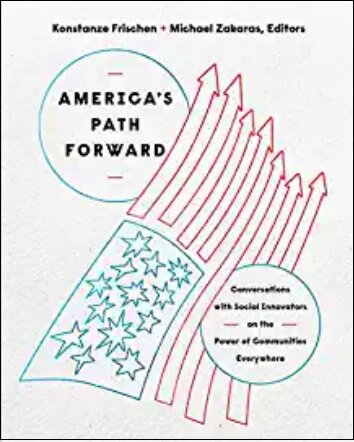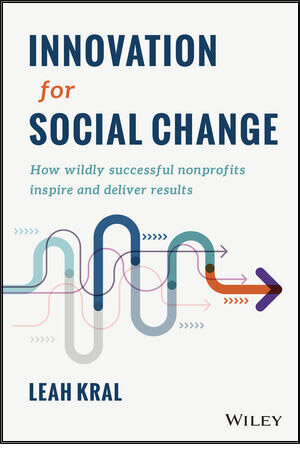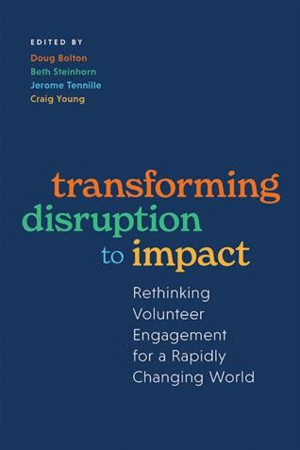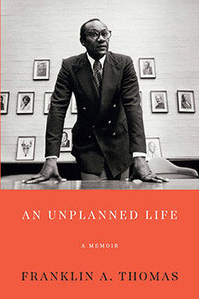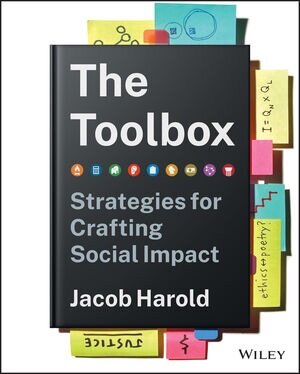America’s Path Forward: Conversations with Social Innovators on the Power of Communities Everywhere
America already was a divided country long before the 2016 elections and the COVID-19 pandemic. Talking heads on TV debating the biggest problems our country faces has been the normal background noise in many homes for years. Yet seldom do we hear about tangible solutions to those big problems. In America’s Path Forward: Conversations with Social Innovators on the Power of Communities Everywhere by Konstanze Frischen, head of Ashoka in North America, and Michael Zakaras, director of strategy and partnerships at Ashoka U.S., the real solutions come from the people addressing those issues every day.
Through a collection of 22 interviews with changemakers working at the grassroots level, the authors weave an intricate quilt of community-based solutions from their on-the-ground perspectives. While the issues discussed in the book are often debated in headlines, the people facing those problems and forging solutions are often left out of the conversation. The book puts several faces and names to hot-button issues like immigration and mass incarceration and introduces readers to real people making progress toward a more just and sustainable society. Each major national issue is represented by an advocate who is directly affected by the issue and actively working to change it. The interviews center on grassroots organizing and the listening involved in finding a solution that suits all those affected, not just those who are loudest. In a nutshell, this book takes the phrase “Don’t mention a problem if you don’t have a solution,” to a whole other level.
A common theme of trust moves through each essay. As national polls show confidence in U.S. institutions trending down, the book explores how people are finding trust in their community and neighbors instead. That trust must be earned, piece by piece, through open dialogue like those initiated by Casey Woods through her organization FORGE, the only national nonprofit specifically focused on working from within the gun owner community to prevent gun suicide and gun homicide. In her interview, Woods describes the delicate balance she must strike during conversations about guns—as the issue has become so polarized—but emphasized that she valued listening above all else. The more listening that’s done, the more similarities that can be unearthed.
“I always encourage people on all sides to focus on the motivations behind people’s choices—on both sides,” she says. What gets lost in the gun debate, Woods argues, is the motivation on both sides to protect loved ones, whether it be through advocacy for stricter gun control or gun ownership. Conversations with gun owners evolved from there, says Woods, and the focus shifted to highlight the need to protect fellow gun owners from gun suicide. “We empower them to intervene, to hold on to or secure guns until a crisis has passed. Essentially, we’re building on the ‘Friends don’t let friends drive drunk’ model, except instead of alcohol and cars, we’re talking about firearms and suicide,” Woods says.
As national polls show confidence in U.S. institutions trending down, the book explores how people are finding trust in their community and neighbors instead. That trust must be earned, piece by piece, through open dialogue....
Judging from the interviews, such conversations almost inevitably lead to gathering and organizing. In an interview with Nick Tilsen, founder of the NDN Collective, multigenerational organizing is uplifted as a key element to tangible change in the Native American community. He calls the vigor and optimism of his community’s youth “infectious” and the wisdom and knowledge of the elders “irreplaceable”—mix them together and a new energy is brought to a movement. Tilsen recalled a moment at the NDN Collective when they met with federal government officials to discuss the possible return of the sacred lands in the Black Hills. Tilsen noted that at the same table as the government officials was Madonna Thunder Hawk, an influential elder whose activism spanned the occupation of Mount Rushmore and Standing Rock.
“[M]eanwhile, across from her are all these feds from the Department of Interior,” says Tilsen. “And 100 percent of the people in that room were Indian.” It wasn’t until Thunder Hawk noted the awe she felt at the progress that had been made since her time fighting decades ago that the room took a moment to reflect. “That’s why intergenerational organizing is important. Often we’re just heads down, working. And it can be easy to forget that our work is about healing. It’s about long-term change,” Tilsen says. “In that moment, we were making history.”
America’s Path Forward does a great job of bringing the reader to each advocate’s eye level to view the issue from a more tangible perspective.
America’s Path Forward does a great job of bringing the reader to each advocate’s eye level to view the issue from a more tangible perspective. Each interviewee is faced with a change, either in their community, job, or other part of their lives, but few of them view the change as strictly negative. Bren Smith, co-founder of GreenWave, saw opportunity and growth in a dying fishing industry. Smith explains that the path to ocean farming wasn’t an easy one to forge, as he and many other working-class environmentalists felt misplaced in the environmental movement, which at one point was focused on the impact on the physical environment rather than on the people and livelihoods affected. Smith says the shift away from what not to do in order to save the environment is what empowered innovative ideas.
“The shift to the yes, to the what’s possible as opposed to what’s forbidden, opens up a whole new space. That’s how you opened up ocean farming as a viable alternative for fishermen,” Smith says. Perhaps the most important piece of his interview stems from his adamance to keep the solution he found, ocean farming, as a public resource. When asked why he chose to open-source his model of growing regenerative species of kelp and ocean plants, Smith says, “The way you get collaboration and ideas is by open sourcing things, releasing IP (intellectual property rights). And that comes from a fisherman tradition that whenever you have problems, you get on the radio and call people to find out how to fix them.”
Collaboration, listening, and understanding sound like obvious building blocks for developing solutions, but on a national level, those concepts can get so muddied and tangled that it’s hard to find common ground. Frischen and Zakaras do an excellent job of illustrating solutions that are simpler than we think and playing out in communities across the country. While the COVID-19 pandemic forced people to physically isolate, it showed the way communities in crisis find a path to solutions together, and this book is an excellent, timely example of what those solutions can grow into given time and attention.
Samantha Mercado is a staff writer for Philanthropy News Digest.


